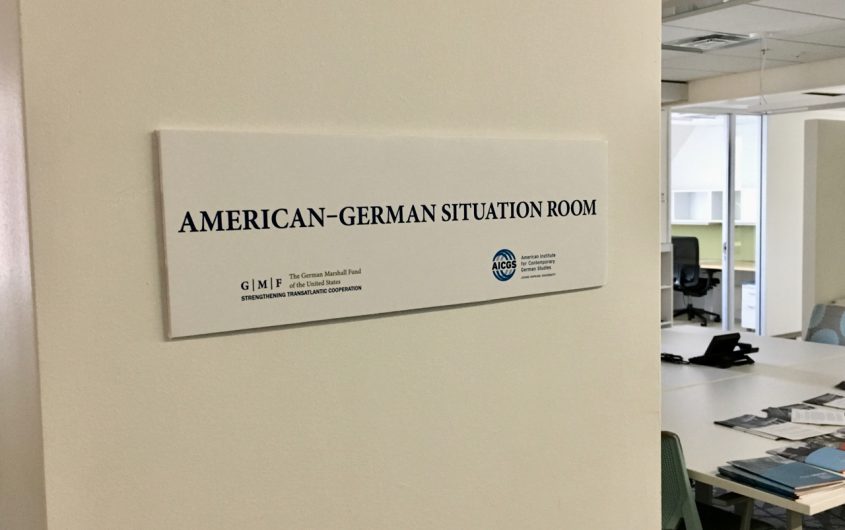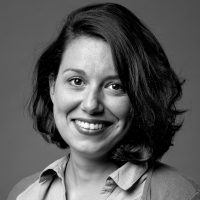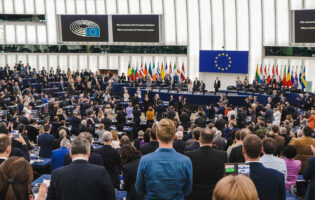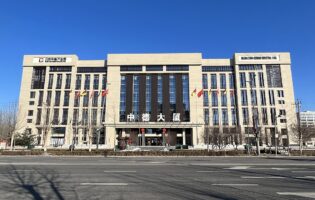AGI News
Maria Skora, AGSR Fellow

AICGS

Maria Skora
Das Progressive Zentrum
Maria Skora is a fellow in the American-German Situation Room in February 2019. She studied sociology in Poland and Denmark and received a doctorate in economics in 2015. Before arriving in Germany, she divided her professional career between academia as a lecturer and the Polish Ministry of Labour and Social Policy. Since 2012, she also served as an expert for the All-Poland Alliance of Trade Unions and facilitated the activities of the United Nations Development Program in Warsaw. In Germany, Maria first worked as a program director at the HUMBOLDT-VIADRINA Governance Platform. Today, she is Senior Project Manager at Das Progressive Zentrum, an independent think tank based in Berlin. She is responsible for developing the expertise in topics related to Central and Eastern Europe, transatlantic relations, and structural change.
While a fellow at the American-German Situation Room, Maria will pursue a comparative, policy-oriented analysis focused on the models of inclusive growth in the context of technological advancement.
AGI is pleased to welcome Maria Skora as an AGI/GMF Fellow with the American-German Situation Room in Washington, DC, in February 2019.
Maria Skora is Senior Project Manager at Das Progressive Zentrum, an independent think tank based in Berlin. She is responsible for developing the expertise in topics related to Central and Eastern Europe, transatlantic relations, and structural change.
While a fellow at the American-German Situation Room, Maria will pursue a comparative, policy-oriented analysis focused on the models of inclusive growth in the context of technological advancement. Her interest focuses on restructuring processes due to deindustrialization (e.g., in former coal mining areas or industrial heartlands, like the “Manufacturing Belt”) or developing innovative economic paths of reindustrialization and socio-economic revival through modern technologies (e.g., in start-up hubs or smart cities, like Columbus, OH, Kansas City, MO, Pittsburgh, PA). She will research both on challenges as well as good practice examples of successful models for creating jobs and enhancing social cohesion. This study visit will equip her with material necessary for comparing mirroring social and economic trends at the macro level in Germany and the United States (such as the emergence of digital economy or decarbonization of economy). Simultaneously, it will also allow for identifying examples of successful federal and regional policies for overcoming structural change launched on both sides of the Atlantic and map social, political, and economic stakeholders in both countries playing a pivotal role in steering the fourth industrial revolution.









